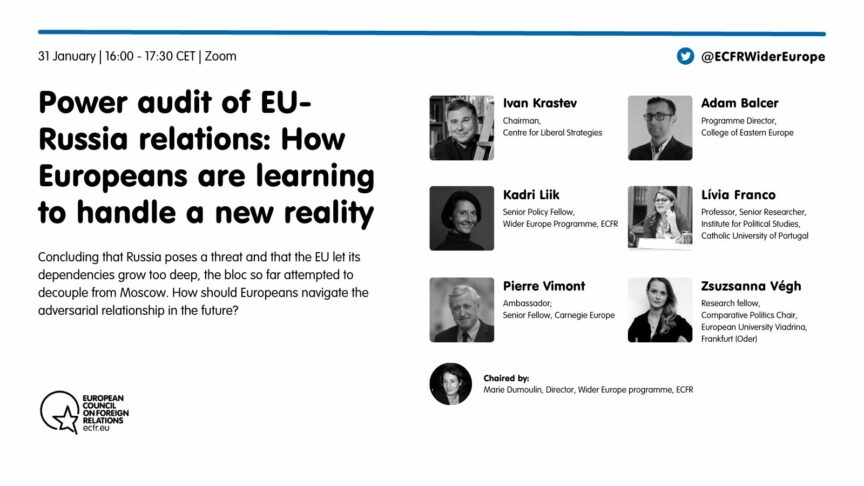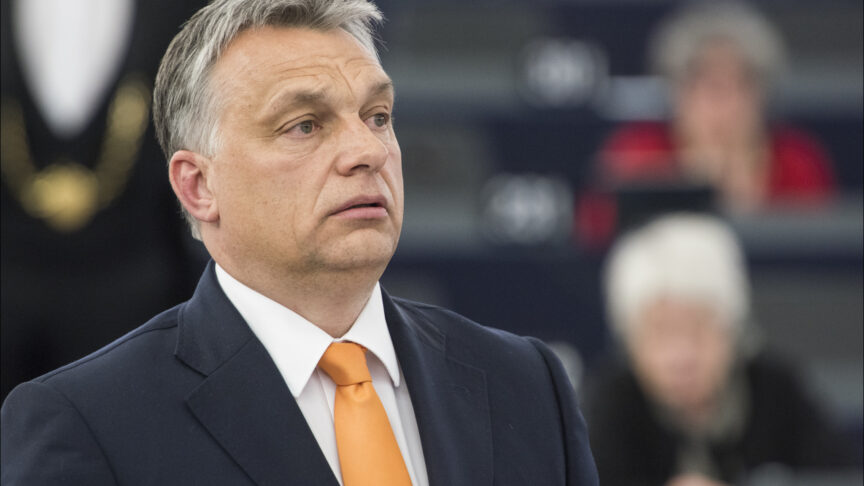
Hungary in waiting: The Slovak challenge for the EU and Ukraine
The new Slovak government seems a natural pro-Kremlin ally for Hungary. But there is still time for the EU, member states, and Ukraine to get Fico onside
European University Viadrina
Zsuzsanna Végh is an analyst focusing on Central European countries’ European and foreign policy, the state of democracy and the radical right in Central Europe, with particular interest in Hungary. She has extensive experience working at the intersection of academic research and policy analysis. She is a lecturer and PhD researcher at the European University Viadrina and an associate researcher at the European Council on Foreign Relations. She is visiting fellow and was previously ReThink.CEE Fellow at the German Marshall Fund of the United States, and authored reports for Freedom House’s Nations in Transit on her native Hungary. Previously, she worked at the Center for European Neighborhood Studies of the Central European University and the Hungarian Institute of International Affairs.

The new Slovak government seems a natural pro-Kremlin ally for Hungary. But there is still time for the EU, member states, and Ukraine to get Fico onside

Concluding that Russia poses a threat and that the EU let its dependencies grow too deep, the bloc so far attempted to decouple from Moscow. How should Europeans navigate the adversarial relationship in the future?

The European Commission’s agreement with Hungary on anti-corruption reforms is significant. But, even if the Hungarian government does implement them, the measures alone are not sufficient to reverse democratic backsliding in the country

The war in Ukraine has driven a wedge between Hungary’s Fidesz and Poland’s Law and Justice parties. But they could still mount a powerful challenge to the EU if – or, rather, when – they reunite in their opposition to rule of law demands

Hungary’s parliamentary election could be a turning point in its foreign policy. An opposition win could mean realignment with the EU, but polls suggest that it might be a tight race
The Orbán government’s demonstrations of European solidarity have been partly motivated by its nationalist goals and its concerns about migration
The Hungarian government now has a great deal of flexibility to rule as it sees fit, provided that it portrays its actions as being in the interests of crisis management
The Orbán government will likely fuel conflict with newly appointed opposition mayors, taking every chance to portray them as incompetent.
The man nominated to encourage democratic norms among the EU’s neighbours has overseen the degradation of Hungary’s own standards. The damage could already be done
ECFR’s EU28 Survey reveals that Hungary manages to outpoll even the United Kingdom as the “most disappointing” EU member state. But May’s European Parliament poll is likely to see it dig in rather than change course

The new Slovak government seems a natural pro-Kremlin ally for Hungary. But there is still time for the EU, member states, and Ukraine to get Fico onside

The European Commission’s agreement with Hungary on anti-corruption reforms is significant. But, even if the Hungarian government does implement them, the measures alone are not sufficient to reverse democratic backsliding in the country

The war in Ukraine has driven a wedge between Hungary’s Fidesz and Poland’s Law and Justice parties. But they could still mount a powerful challenge to the EU if – or, rather, when – they reunite in their opposition to rule of law demands

Hungary’s parliamentary election could be a turning point in its foreign policy. An opposition win could mean realignment with the EU, but polls suggest that it might be a tight race
The Orbán government’s demonstrations of European solidarity have been partly motivated by its nationalist goals and its concerns about migration
The Hungarian government now has a great deal of flexibility to rule as it sees fit, provided that it portrays its actions as being in the interests of crisis management
The Orbán government will likely fuel conflict with newly appointed opposition mayors, taking every chance to portray them as incompetent.
The man nominated to encourage democratic norms among the EU’s neighbours has overseen the degradation of Hungary’s own standards. The damage could already be done
ECFR’s EU28 Survey reveals that Hungary manages to outpoll even the United Kingdom as the “most disappointing” EU member state. But May’s European Parliament poll is likely to see it dig in rather than change course
Viktor Orbán’s post-victory intentions are clear: to extend Fidesz control over civil society and remaining independent media outlets. The stage is now set for the EU – with European People’s Party MEPs holding the balance – to take action on further violations of democratic principles and values

Concluding that Russia poses a threat and that the EU let its dependencies grow too deep, the bloc so far attempted to decouple from Moscow. How should Europeans navigate the adversarial relationship in the future?